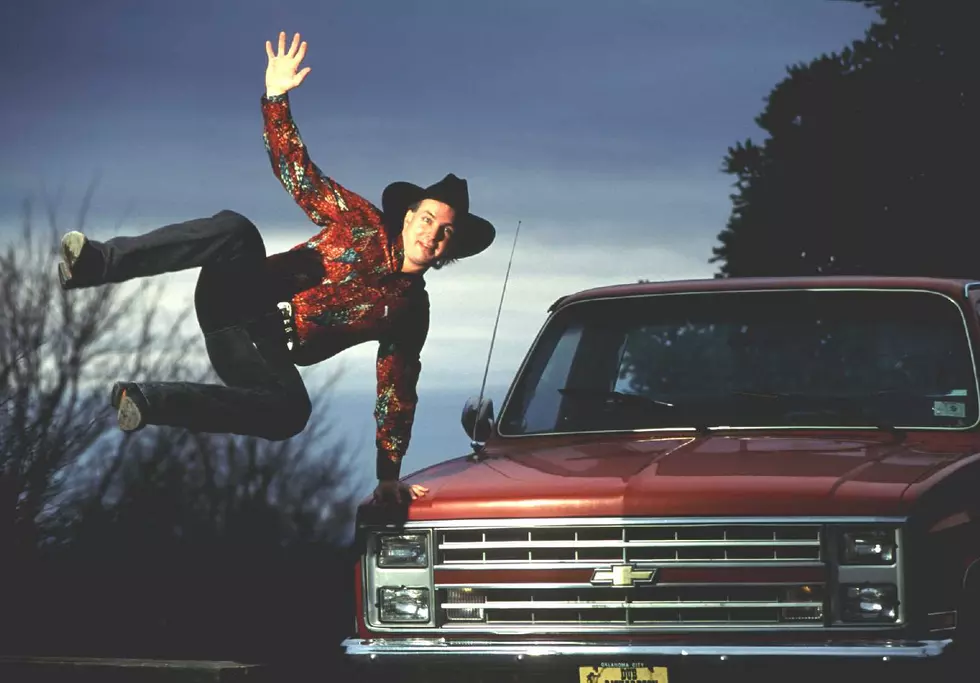
Recap: ‘Country Music,’ Episode 4 — ‘Hello, I’m Johnny Cash’
The fourth episode of Country Music on PBS introduces the artists many would put on their metaphorical country music Mount Rushmores. However, the documentary is quick to remind viewers that it wasn't all about the music.
How Music City marketed, and perhaps even exploited, its most precious export is integral to understanding country music then and now. Midway through the two-hour episode, Marty Stuart remarks that more than anything Nashville remains a consistent hub for music because it's such a business-minded town. "Guitar in this hand, briefcase in this hand," he says, illustrating his point.
Ken Burns quotes Music Row pioneer Chet Atkins in summarizing both the signature production coming from two major studios in the 1950s and Stuart's point about keeping an eye on the bottom line.
"'What is the Nashville sound?' Chet Atkins was asked. He reached into his pocket and jingled his change. 'That,' he said, 'is the Nashville sound.'"
Long explorations of the early lives and ascents of Elvis Presley, Johnny Cash, Patsy Cline and Loretta Lynn make up the meat of this Country Music episode, the fourth in an eight-part series. One learns that not all of these acts were instantly revered. The first time Charlie Daniels heard Presley sing Bill Monroe's "Blue Moon of Kentucky," he says, he hated him. Indeed, many felt the King desecrated the bluegrass standard, and after a single performance at the Grand Ole Opry, he was not invited back.
Vintage footage of the Man in Black impersonating Elvis' signature moan and hip shake and candid assessments of the Country Music Hall of Famer's professional and personal life by his daughter Rosanne Cash more than hold your gaze through the first hour. It's truly the Johnny and Elvis show, although Cline is introduced early enough for her story to transfix us during the second half. The legend's story is told with help from Willie Nelson, Loretta Lynn, surviving Jordanaire Ray Walker and the late Jean Shepard, whose husband Hawkshaw Hawkins died in the same plane crash that killed Cline in 1963. In fact, Shepard's steely re-telling of the night she got that phone call — she was eight months pregnant — may lead to a reemergence into her life and music. It's simply a brilliant piece of tape.
While not teased during the episode's opening sequence, Ep. 4 also focuses on Nelson, a clean-shaven kid from Abbott, Texas, who had a bad habit of selling away writing credits on hit songs for dirt cheap. Along with Tom T. Hall, Faron Young and so many more writers, Nelson held the floor down at Tootsies Orchid Lounge (Tootsie is quite a character herself) because of its proximity to the Ryman Auditorium and the Grand Ole Opry. There is some fascinating trivia during the telling of Nelson's story. Who knew that he intended to call "Crazy" — a song he wrote that Cline turned into one of the biggest hits of the century — "Stupid," instead? If it wasn't PBS and someone told you that, you'd be sure you were being pranked!
The tension that makes this documentary so compelling is between how country music is perceived and how its pioneers and ambassadors adjusted to remain America's most popular form of music throughout the 20th century. Bill Anderson — sweet, soft-spoken Whisperin' Bill Anderson — begins with, “It was kind of an us-against-them mentality, really,” but by now you've likely figured that out. The singular, tight-knit nature of the community sows a fertile field for musicians and businessmen to grow and thrive, and when one of their own falls, the whole community comes together and mourns. Cline's death punctuates the end of the episode, leaving us with questions of "what if?" but also images of huge celebrities doing ordinary things to comfort one another.
The Nashville Sound may also be the sound of silence as young men and women pull down the brims of their Stetsons in solemn prayer during a memorial service. Cline's fetting feels familiar because we've seen the same thing happen in the 21st century with stars like George Jones, Troy Gentry and Little Jimmy Dickens.
The remaining episodes of Country Music will air on Sept. 22-25. All episodes are airing at 8PM ET on PBS and are also available on the PBS video app and PBS.org.
THIS CONTENT BROUGHT TO YOU IN PARTNERSHIP WITH COUNTRY MUSIC ON PBS.
More From Kicks 105






